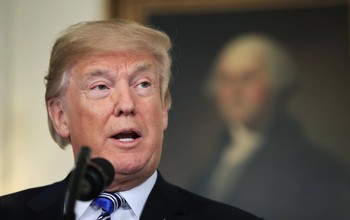By Randall D. Eliason
Washington Post
March 30, 2018
President Trump’s now-former attorney John Dowd allegedly told lawyers representing Paul J. Manafort and Michael Flynn last year that the president would consider pardoning the two men if they got into legal trouble. (Dowd has denied the reports.) Much of the news coverage has focused on whether offering pardons to induce a witness not to cooperate in the special counsel’s investigation could constitute obstruction of justice. But there is another potential charge that could apply more directly and that prosecutors might have reason to favor: conspiracy to commit bribery.
Federal bribery requires that a public official agree to receive and accept something of value in exchange for being influenced in the performance of an official act. In this scenario, the official act would be granting a pardon. While the Supreme Court’s 2016 decision in the case of former Virginia governor Robert F. McDonnell dramatically narrowed the definition of “official act,” there’s no question that a president granting a pardon would be an exercise of government power under the McDonnell v. United States standard.


